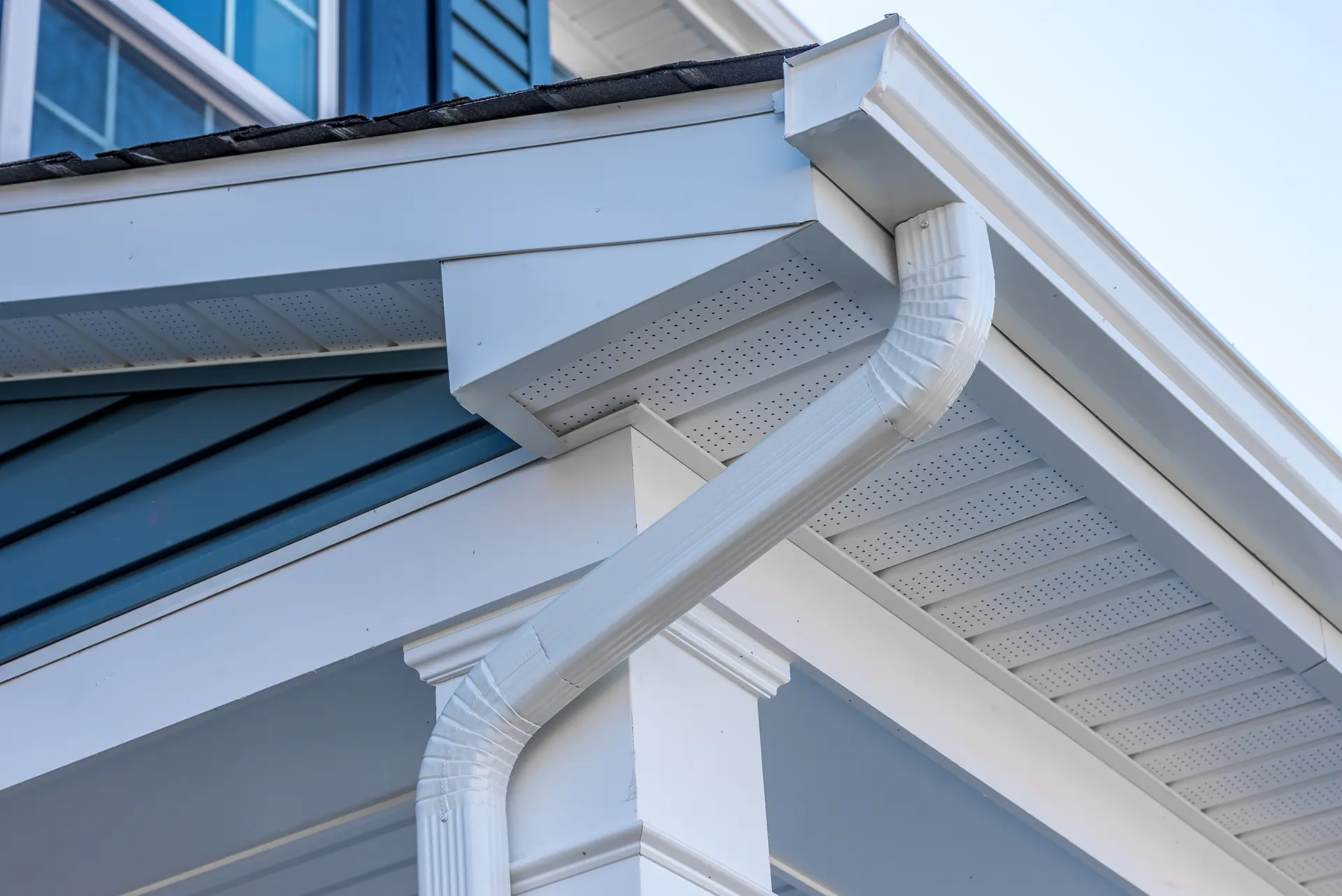Gutters

When it comes to ensuring proper construction and installation of gutters for your home, there are several important factors to consider:
Material Choice: Gutters are commonly made from materials like aluminum, vinyl, steel, and copper. Each material has its pros and cons in terms of durability, cost, and aesthetic appeal. Aluminum is lightweight and resistant to rust, while copper is durable and develops a patina over time.
Size and Capacity: Gutters come in different sizes and capacities (measured in inches), which determine how much water they can handle. The size needed depends on factors like roof size, pitch, and local rainfall intensity. It’s crucial to install gutters that can handle the volume of water expected during heavy rains.
Proper Slope: Gutters must be installed with a slight slope towards the downspouts (typically ¼ inch of slope for every 10 feet of gutter length). This ensures that water flows properly towards the downspouts and prevents pooling or overflow.
Correct Placement of Downspouts: Downspouts should be strategically placed to effectively drain water away from the foundation of your home. They should extend several feet away from the house to prevent water from seeping into the foundation, which can cause structural damage over time.
Seamless vs. Sectional Gutters: Seamless gutters are custom-made to fit your home’s dimensions, which reduces the chances of leaks compared to sectional gutters that are joined together. However, sectional gutters are easier to install and repair.
Gutter Guards: Consider installing gutter guards or screens to prevent leaves, debris, and pests from clogging the gutters. This reduces maintenance needs and ensures that water can flow freely through the gutter system.
Quality of Installation: Proper installation is crucial for the effectiveness and longevity of gutters. Hire a reputable contractor with experience in gutter installation. They should use quality materials, fasteners, and sealants to ensure a secure attachment to your home.
Maintenance Requirements: Gutters need regular maintenance to function properly. This includes cleaning out debris, inspecting for leaks or damage, and ensuring that downspouts are clear of obstructions.
Local Building Codes: Check local building codes and regulations regarding gutter installation. Some areas may have specific requirements related to gutter size, placement, and drainage.
Warranty and Guarantees: Choose gutters that come with a warranty on materials and installation. This provides peace of mind that you’re covered in case of defects or issues with the gutter system.
By paying attention to these factors and ensuring proper installation and maintenance, you can protect your home from water damage and ensure that your gutters effectively manage rainwater runoff.
%
Happy Clients
Projects
%


